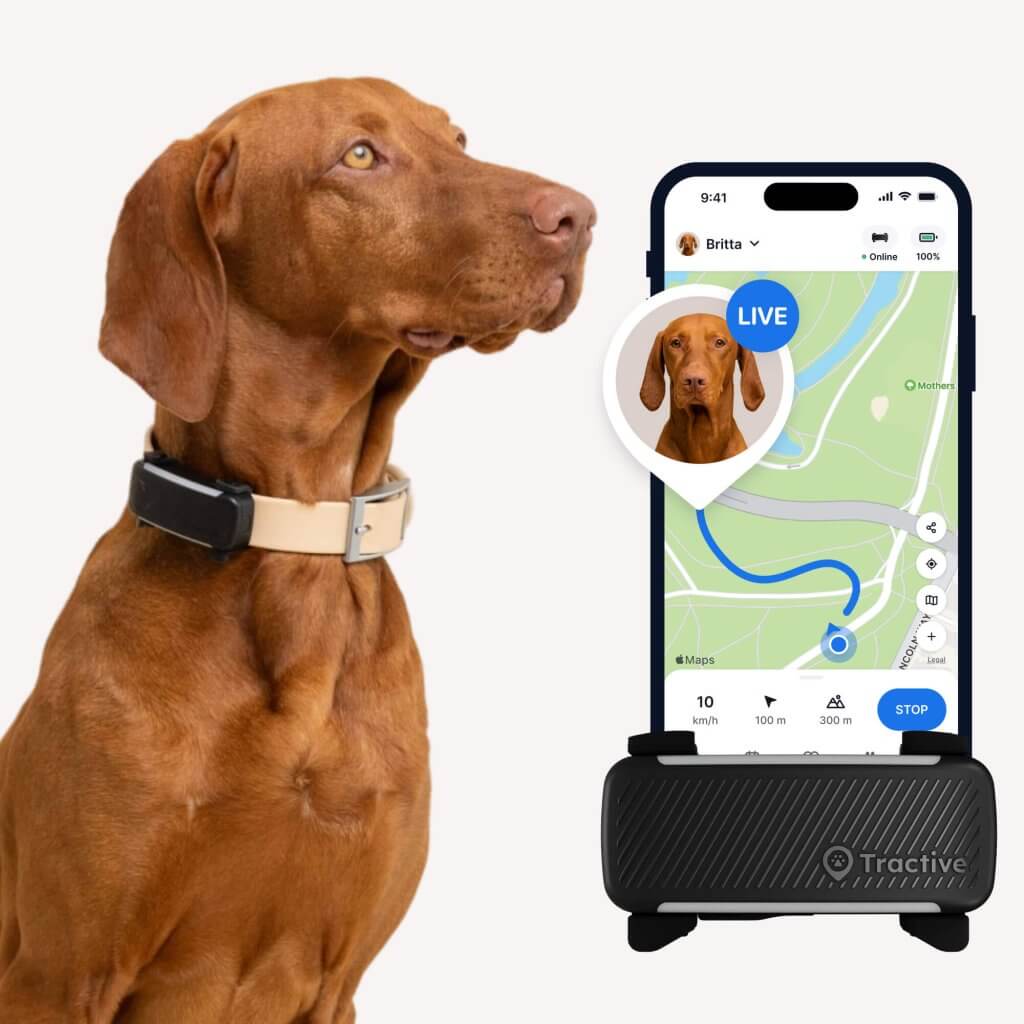Can Dogs See Ghosts? Busting Myths & More
With their heightened senses, dogs are capable of sensing things we can't - but are ghosts one of them? Here's a deep dive into our furry friends' extraordinary sensory superpowers.

As Halloween creeps closer and the nights get spookier, you might find yourself paying extra attention whenever your dog perks up at some unseen sight, sound, or smell. (And they’re always in the dark corners, aren’t they? You know, the ones where things always seem to go bump at night.) It’s enough to make you wonder, “Can dogs see ghosts? What can dogs see that humans can’t?” In this post, we’re going to bust some myths – including whether these claims are real or just the stuff of legend.

Always know your buddy is healthy & safe
Read moreCan dogs see spirits?
Firstly, no – there’s no scientific evidence that supports the claim that dogs can see ghosts or spirits. (No matter what Hollywood, Netflix, or the Ghostbusters might tell you.) But it’s understandable if you think so. After all, dogs tend to have heightened senses that are way sharper and better developed than our own. So how do you explain it when your dog, say, barks at a dark corner of your house – or continues to interact with the belongings of someone who’s passed away?
What can dogs “see” that humans can’t?
Besides their keen sense of smell, dogs are sensitive to a bunch of stimuli in our environment. Much of which we aren’t really aware of ourselves. Here are a couple.
Movement & motion – especially in the dark
Dogs can see a broader spectrum of light than humans. Their eyes are built to detect more subtle shifts in light and shadow, even in dark, dimly-lit areas.1 Plus, dogs can also see at a distance up to eight times further than humans. Because of this, your dog is better able to navigate in the dark than you are. It’s also why you’ll see wild dogs or wolves active around nighttime. They hunt and travel as they might during the day.
Dogs are also highly sensitive to motions in the environment.2 So they’re better at picking up on moving objects than still ones. This, combined with their ability to see better in the dark, means they’re more sensitive to subtle changes in shadowy areas. Besides this, your dog also has a wider field of vision than you. So they can more easily detect a “threat” or prey approaching from a distance or the side. (While you might have to turn your head to spot it.)
So the next time you see your dog barking or even growling at a shadowy corner of your house, don’t fret. It’s more likely to be the movement of some household pest, bug, or a bit of dust. (Or even the pile of laundry you’ve dumped on your desk chair.) Movements that might otherwise be undetectable (or invisible) to the human eye.
Sounds too high-pitched for us to hear
Dogs are capable of picking up higher-pitched or higher-frequency sounds at much greater distances than us.3 (Like, for example, dog whistles.) Dogs can hear sounds up to 64,000 Hz – humans only around 20,000. That’s why high-pitched or intermittent sounds might be more likely to spook your dog instead.4 You might’ve seen this watching them bark or hide or whimper when your smoke detector battery signals it’s low. Other examples of high-frequency sounds in your household are doors creaking, indoor alarms, or the humming of your ceiling fan.
So if your dog cocks their head expectantly as if listening to something unseen, rest assured. They’re most likely trying to figure out if there’s a problem with your air freshener. (They just can’t help doing it when it happens to be dark around your house.)
Scents & smells we can’t perceive
Dogs’ noses have close to 300 million olfactory receptors. (While humans, in comparison, have only around 6 million.) In fact, an entire portion of your dog’s brain is designed to pick up and sort out smells alone. But while it’s arguably their ultimate superpower, your dog still doesn’t qualify as the next Ghostbuster. Rather, they’re actually capable of “smelling” out different health conditions – and even our emotions.
Our bodies actually tend to give off a certain scent (or chemosignals) when we’re feeling happy or scared. In fact, a 2018 study even found that Golden Labs and Retrievers are able to “smell” human emotions – including fear.5 The researchers found that when dogs were more exposed to the “scent” of someone in a state of fear or stress, they were more likely to respond with stress themselves. So if your buddy tends to get spooked when you two are walking out late at night together – it’s more likely they’re responding to your fear. (And not Casper the friendly ghost.)
Low-frequency vibrations in the environment
You might’ve read stories of how dogs have alerted their parents to earthquakes and other natural disasters. And it’s another one of your buddy’s superpowers. Aka, dogs’ sensitivity to subtle shifts in the wider environment. Which include low-frequency vibrations that we might not “hear’, but rather sense unconsciously. These sound waves cause a physical vibration in the environment – like, for example the rumble of an airplane taking off or even your air conditioner. Among low frequency sounds are infrasonic sounds, which fall below 20 Hz. So while your dog can’t “hear” them, they can pick up on these vibrations through sensory organs like their whiskers or even their paws.
Even the creaking of old pipes can emit low-frequency infrasonic sound waves. Which might explain the creepy feeling you get passing by that old house in your neighborhood. You and your dog both can’t consciously “hear” these vibrations, since they fall just below the threshold of our senses. But since your brain can’t find its source, it’s why you (and your dog) might feel anxious, spooked, or alert instead.

Keep track of your dog’s daily adventures
Follow every step with unlimited range Live Tracking. Get alerts if they wander too far. Keep them happy & healthy with Activity & Sleep Monitoring. Get Health Alerts if something seems off.
So, can dogs see ghosts? Not really. But what they lack in Ghostbusting, they make up for with their incredible senses and their profound connection to us. While they might not qualify as the next Scooby Doo, they’re able to detect subtle changes in the environment, sense our emotions – and even save lives. All of which count as superpowers, if you ask us.



